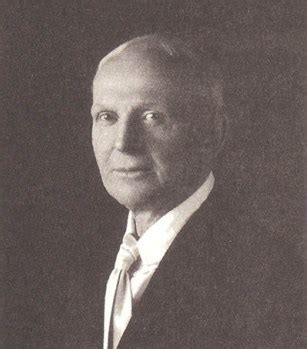A Quote by Frederick Lenz
When there is no thought in the mind, no thought of thought, when the mind is quiet but fully alert, we experience a little bit of enlightenment.
Quote Topics
Related Quotes
In the beginner's mind there are many possibilities; in the expert's mind there are few.... In the beginner's mind there is no thought, 'I have attained something.' All self-centered thoughts limit our vast mind. When we have no thought of achievement, no thought of self, we are true beginners. We can really learn something.
There is an invisible thought-stuff on which the mind acts, making things through the operation of a law not yet fully understood by man. Every thought moves upon this invisible substance in increasing or diminishing degree. When we praise the richness and fullness of God, this thought-stuff is tremendously increased in our mental atmosphere. It reflects into everything that our mind and our hands touch.
The substance of mind is the substance of heaven. A joyful thought is an auspicious star or a felicitous cloud. An angry thought is a thunderstorm or a violent rain. A kind thought is a gentle breeze or a sweet dew. A stern thought is a fierce sun or an autumn frost. Which of these can be eliminated? Just let them pass away as they arise, open and unresisting, and your mind merges with the spacious sky.
In the beginner's mind there is no thought, "I have attained something." All self-centered thoughts limit our vast mind. When we have no thought of achievement, no thought of self, we are true beginners. Then we can really learn something. The beginner's mind is the mind of compassion. When our mind is compassionate, it is boundless. Dogen-zenji, the founder of our school, always emphasized how important it is to resume our boundless original mind. Then we are always true to ourselves, in sympathy with all beings, and can actually practice.
Their thought is India is a beehive (Madhumakhi Ka Chhata) but our thought is India is our Mother (Maata). Their thought is poverty is a state of mind, our thought is that the poor are manifestation of Almighty. Their thought is to divide and rule, our thought is to integrate and do development. Their soch is Vanshvaad, our soch is Rashtravaad. They say Rajneeti is everything, we say Rashtraneeti is everything. Your thought is to save the chair, our thought is to save the nation.
The moment our discourse rises above the ground-line of familiar facts, and is inflamed with passion or exalted thought, it clothes itself in images. A man conversing in earnest, if he watch his intellectual processes, will find that always a material image, more or less luminous, arises in his mind, contemporaneous with every thought, which furnishes the vestment of the thought.... This imagery is spontaneous. It is the blending of experience with the present action of the mind. It is proper creation.
The average mind requires a change of environment before he can change his thought. He has to go somewhere or bring into his presence something that will suggest a new line of thinking and feeling. The master mind, however, can change his thought whenever he so desires. A change of scene is not necessary, because such a mind is not controlled from without. A change of scene will not produce a change of thought in the master mind unless he so elects.
The subconscious mind makes no distinction between constructive and destructive thought impulses. It works with the material we feed it, through our thought impulses. The subconscious mind will translate into reality a thought driven by fear, just as readily as it will translate into reality a thought driven by courage or faith.
Repentance means a change of mind. Formerly, I thought sin as a pleasant thing, but now I have changed my mind about it. Formerly, I thought the world an attractive place, but now I know better. Formerly I regarded it miserable business to be a Christian, but now I think differently. Once I thought certain things delightful, now I think them vile. Once I thought other things utterly worthless, now I think them most precious. That is a change of mind, and that is repentance.
When we let our mind relax, a moment will come when we rest without thoughts. This stable state is like an ocean without waves. Within this stability a thought arises. This thought is like a wave which forms on the surface of the ocean. When we leave this thought alone, do nothing with it, not "seizing" it, it subsides by itself into the mind where it came from.

































